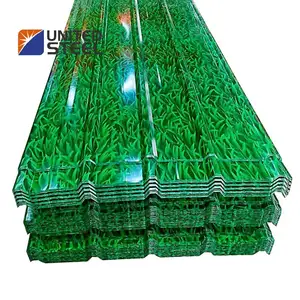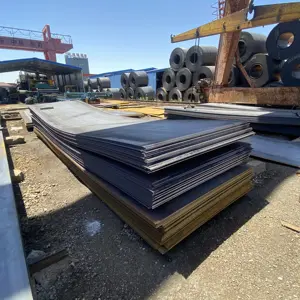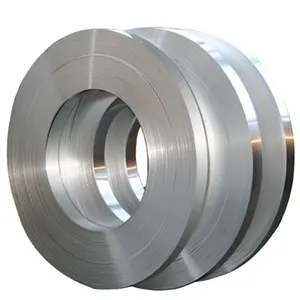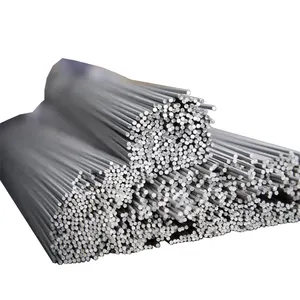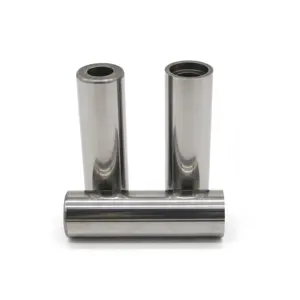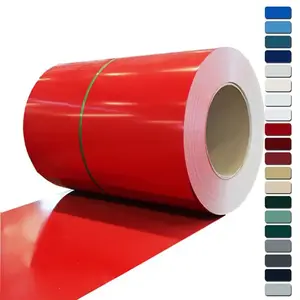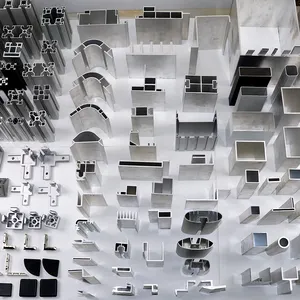Popular in your industry
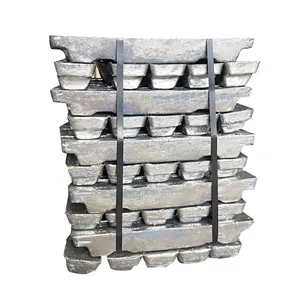






























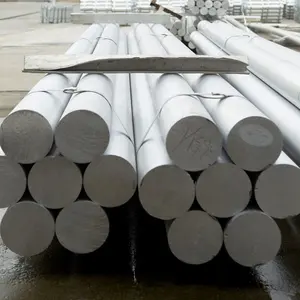



































Top categories
About price of 1kg aluminium
Aluminium, a metal of the modern era, is as versatile as it is ubiquitous, underpinning industries from automotive to aerospace. As global markets ebb and flow, the cost of 1kg of aluminium remains a moving target, influenced by a confluence of factors. This article delves into the intricate web of market trends, industry demands, and geopolitical shifts that dictate aluminium pricing. We'll explore how Alibaba.com serves as a pivotal marketplace for sourcing various grades and forms of aluminium, ensuring that businesses can navigate the complexities of procurement with ease and precision.
Current Market Trends for Aluminium Pricing
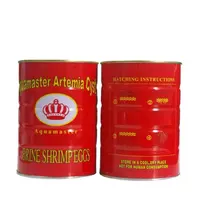
Aluminium prices have been influenced by a variety of factors, showing a downward trend despite some positive economic indicators. The market has been affected by geopolitical tensions and macroeconomic conditions, which have led to a cautious approach from investors and businesses. The performance of equity markets, particularly in the United States, has had an impact on aluminium price forecasts, with various economic data points sending mixed signals to the market.
Stock levels for aluminium have seen notable changes, with on-warrant stocks rising significantly, yet remaining below historical norms. This indicates a complex balance between supply tightness and fluctuating demand. The market has also been reacting to the demand from various end-user sectors, with some areas showing tepid demand amidst high-inflation environments and challenging economic conditions, particularly in Europe.
Despite some sectors like automotive showing signs of recovery, it has not been sufficient to offset the weaknesses in other sectors such as construction and packaging. The overall market sentiment remains bearish, with expectations that the current trends may persist unless there is a significant shift in market fundamentals. Investors and businesses are closely monitoring these trends to make informed decisions regarding aluminium procurement and investment.
Factors Influencing the Cost of 1kg of Aluminium

The cost of 1kg of aluminium is influenced by a variety of factors. The price of electricity is a significant determinant since it is the primary energy source for smelting aluminium, a highly energy-intensive process. Fluctuations in electricity costs, which can vary based on resource availability, infrastructure, and energy policies, directly impact production expenses.
Industry events and trends also play a crucial role in shaping aluminium prices. The demand for aluminium is affected by shifts in sectors such as construction, transportation, packaging, and electronics. For instance, the construction industry's demand for aluminium in applications like roofing and window frames can influence market prices.
Global events, economic conditions, and international trade policies are other critical factors. Political unrest, trade conflicts, and natural disasters can disrupt supply chains and affect pricing. Conversely, urbanisation and population growth can boost demand for aluminium. Additionally, tariffs and trade restrictions can alter the competitive landscape, affecting the availability and cost of aluminium on the global market.
Exchange rate fluctuations also have an impact since aluminium is typically priced in US dollars. A stronger dollar can make aluminium more expensive for buyers using other currencies, potentially reducing demand and lowering prices. These diverse factors collectively contribute to the dynamic pricing of aluminium in the market.
Types of Aluminium Available on Alibaba.com
Alibaba.com showcases a diverse range of aluminum profiles suitable for various applications and design requirements. Among the types available, customers can find mounted bookcase profiles, which are designed to integrate seamlessly with LED lighting systems, enhancing the aesthetic and functionality of bookshelves. The platform also offers profiles like the 6063 anodized aluminum frame, known for its durability and resistance to corrosion, making it ideal for both structural and decorative purposes.
For lighting solutions, there are slim, recessed aluminum profiles tailored for LED strips, which can be used outdoors, providing a sleek look while protecting the lighting elements. The versatility of aluminum is further exemplified in profiles designed for window and door frames in caravans, showcasing the material's adaptability and strength in mobile environments.
In the realm of furniture, aluminum profiles are available for kitchen cabinets, offering continuous handle designs that blend functionality with modern aesthetics. These extruded profiles come in various shapes, including the popular G handle profile, which adds a touch of elegance to cabinetry. Additionally, custom extrusion services are available for those seeking tailored solutions, ensuring that specific design requirements are met with precision.
Industrial applications are not left out, with options like awning profiles and other specialized shapes that cater to the needs of industrial setups. For DIY enthusiasts and professionals alike, there are European standard anodized linear rails suitable for 3D printers and CNC machinery, demonstrating aluminum's role in the advancement of manufacturing technologies.
Applications of Aluminium in Various Industries
Aluminum's versatility is showcased through its extensive use across various industries. In the automotive sector, aluminum is prized for its lightweight properties, contributing to fuel efficiency and reduced emissions. The aerospace industry relies heavily on aluminum alloys for aircraft structures, while the military utilizes aluminum in applications ranging from steelmaking deoxidizers to high-temperature resistant cermets for rockets and missiles.
The shipbuilding industry favors aluminum for its resistance to rust and lightweight nature, enhancing energy efficiency and environmental performance. In construction, aluminum is employed in large-span roof systems and all-aluminum movable houses, offering advantages such as ease of installation, resistance to corrosion, and repeated usability.
Everyday uses of aluminum include its role in sound absorption in modern buildings, its waterproofing and freshness-preserving qualities in food packaging, and its decorative and protective uses in home interiors. Its excellent conductivity makes it suitable for electrical wiring and components, while its reactivity with sodium hydroxide is utilized in pipe dredging solutions.
Reflective properties of aluminum make it ideal for high-quality reflectors and solar cookers, and its infinite recyclability is exemplified in the widespread use of aluminum cans. The metal's adaptability is further evidenced in its application in cold storage units, freezer components, and even in vehicles designed for extreme environments like Antarctica.
Features and Specifications of Aluminium Products
Aluminium alloys are renowned for their varied applications due to their unique combination of properties. With over 300 wrought alloys available, 50 of which are commonly used, these materials are categorized by a four-figure system that is universally recognized. The designation for unalloyed wrought aluminium alloys, known as the 1XXX series, indicates the metal's purity, with the last two digits mirroring the purity percentage to the nearest 0.01 percent.
The addition of elements such as copper, zinc, magnesium, silicon, manganese, and lithium enhances the intrinsic qualities of aluminium. These alloying elements are pivotal in improving the strength, corrosion resistance, and thermal and electrical conductivity of aluminium. For instance, the thermal conductivity of aluminium is about three times greater than that of steel, making it an indispensable material for heat-exchangers and similar applications.
Aluminium's mechanical properties are also noteworthy. It can undergo extensive deformation without failure, which allows for a variety of manufacturing processes such as rolling, extruding, and drawing. The tensile strength of pure aluminium is around 90 MPa, but with alloying and treatment, it can be increased significantly. For example, some heat-treatable alloys exhibit tensile strengths exceeding 690 MPa.
Reflectivity is another key feature of aluminium, with around 80% reflectivity of visible light, making it a preferred material for light fixtures and insulating materials. This, combined with its low density and high strength-to-weight ratio, positions aluminium as a strategic material for industries looking to optimize performance while reducing weight.
Material Grades and Their Impact on Aluminium Pricing
The cost of aluminum per kilogram is influenced by the grade of the material, which is determined by its alloy composition. Different alloys have unique properties and manufacturing costs, affecting their market price. For instance, alloys like 7075 and 2024, which include elements such as copper, zinc, and magnesium, offer enhanced strength and durability. These additional elements, however, contribute to higher production costs, making these grades more expensive. On the other hand, alloys such as 6061 are more cost-effective due to their simpler composition, though they may not meet the performance requirements of more demanding applications. The quantity of aluminum being purchased also plays a role in pricing, with bulk purchases typically resulting in lower per-unit costs. Understanding these factors is crucial for businesses to make cost-effective purchasing decisions for their specific needs.
Advantages of Sourcing Aluminium from Our Platform

Aluminum is a versatile and widely used material, recognized for its strength and resistance to corrosion. Its utility spans across various industries due to its impressive properties, including high moisture and temperature resistance. The diversity of aluminum products on our platform is notable, with offerings such as extruded profiles, sheets, and custom CNC machined parts. These products cater to a range of applications, from construction materials like roofing sheets and panels to components for industrial machinery and consumer electronics.
The material grades available, such as 6061 and 7075, are indicative of the aluminum's adaptability and suitability for different uses. Our platform provides a place where buyers can find aluminum in various forms, including anodized, coated, and extruded options, ensuring that specific requirements for projects and products are met. The extensive catalog showcases aluminum's flexibility, with products like heat sinks for electronic applications, structural trusses for event setups, and even intricate profiles for LED lighting systems.
Sourcing aluminum from our platform offers the advantage of exploring a vast selection of aluminum grades and forms, all in one place. The global reach connects buyers with suppliers from different regions, providing a comprehensive view of the aluminum market. This access to a wide network of suppliers can lead to competitive pricing and the ability to find the most cost-effective solutions for aluminum needs.
How to Navigate Our Platform for the Best Aluminium Deals
Navigating our platform for the best aluminium deals involves understanding the variety of aluminium guides and profiles available. Suppliers on the platform offer an extensive range of shapes, such as L-angled, square, and T-shaped bars, catering to diverse industrial needs. These profiles are typically made from aluminum alloys in the 6000 series, known for their balance of strength and workability, with tempering from T3 to T8 to enhance their properties.
For specific applications, you can find hollow tubes, solid round tubes, and intricate framing systems. The versatility extends to components like gaskets, door locks, and sliding track systems, which are essential for construction and design projects. When searching for aluminium products, consider the thickness and grade as they impact the overall cost and suitability for your project.
To secure the best deals, focus on the product specifications that meet your project requirements. Our platform's filtering tools allow you to sort by alloy grade, dimensions, and temper range, helping you find the most cost-effective solutions. Remember, the price of 1kg of aluminium can fluctuate based on these factors, so use the platform's comparison features to ensure you're getting competitive pricing for the quality and quantity you need.
Conclusion: Making an Informed Aluminium Purchase on Our Platform
In conclusion, the price of 1kg of aluminium is a reflection of a complex interplay of market dynamics, from fluctuating energy prices to industry-specific demands. Our platform stands at the forefront of this intricate market, offering a diverse array of aluminium products that cater to a multitude of applications. Whether it's for construction, automotive, or bespoke industrial needs, understanding the factors that influence pricing is key to making informed purchasing decisions. By leveraging our platform's extensive network of suppliers, buyers can compare grades, specifications, and prices to secure the best deals, ensuring that their aluminium purchases align with both quality standards and budgetary constraints. As the market continues to evolve, staying informed and adaptable is the cornerstone of successful aluminium procurement.
